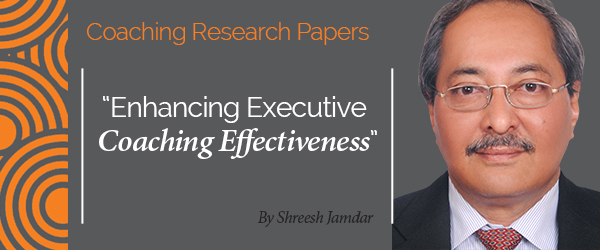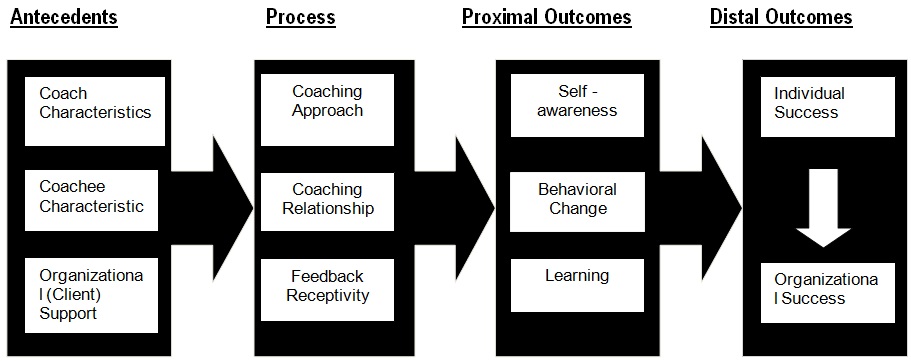
Research Paper By Shreesh Jamdar
(Executive Coach, INDIA)
Background:
Executive Coaching is a fast growing professional field. It has received support across the globe, and is seen as one of the most effective ways of executive development.
As executive coaching services reach more clients /organizations, questions are being asked regarding its efficacy. Dr. Terry Bacon (in his article “Measuring the Effectiveness of Executive Coaching” – Korn/Ferry Institute, 2011) points out that coaching can be expensive. Companies are investing millions of dollars on coaching, so naturally questions arise:
- Are there real outcomes / value addition to executives and their organizations from coaching?
- Are the beneficial outcomes worth the costs and time invested in the process?
To quote Dr. Terry Bacon, “What coaches need is a method for assessing how effective their coaching has been”. He feels this should include aspects like “extent to which executives have achieved their developmental goals and whether the executive has changed the way he or she works, leads others, builds teams, makes decisions, interacts with customers and so on”.
He suggests applying Dr. Donald’s Kirkpatrick’s 4 level learning model to coaching assess coaching effectiveness, as follows:
 That a coach of Dr. Bacon’s standing suggests coaches do an in depth assessment (on all 4 levels of Kirkpatrick model) is itself a testimony to the importance of adopting processes and practices that will improve coaching effectiveness.
That a coach of Dr. Bacon’s standing suggests coaches do an in depth assessment (on all 4 levels of Kirkpatrick model) is itself a testimony to the importance of adopting processes and practices that will improve coaching effectiveness.
Dr. Bacon has also discussed certain other factors, challenges and practices that he considers as having an important bearing on Executive Coaching Effectiveness. Chief amongst them are:
- Coachability of the Executive being coached.
- Identifying the right needs, issues and problems.
- Setting Effective (and measurable) developmental goals.
- Tools and frameworks for enhancing the effectiveness of the coaching process.
Dr. Baek-Kyoo Joo (University of Minnesota) presents a useful framework for successful coaching, based on an “integrative review” of practice and research
FIGURE 1: A Conceptual Framework for Successful Executive Coaching
 As Fig 1 indicates, Dr. Joo’s conceptual framework is concerned with 3 key questions:
As Fig 1 indicates, Dr. Joo’s conceptual framework is concerned with 3 key questions:
- What are the antecedents of positive outcomes in coaching?
- What is the process through which executive coaching leads to positive outcomes?
- What are the proximal outcomes (behavioral change that includes self-awareness and learning) and distal outcomes (the ultimate purposes of executive coaching) including enhanced individual and organizational success.